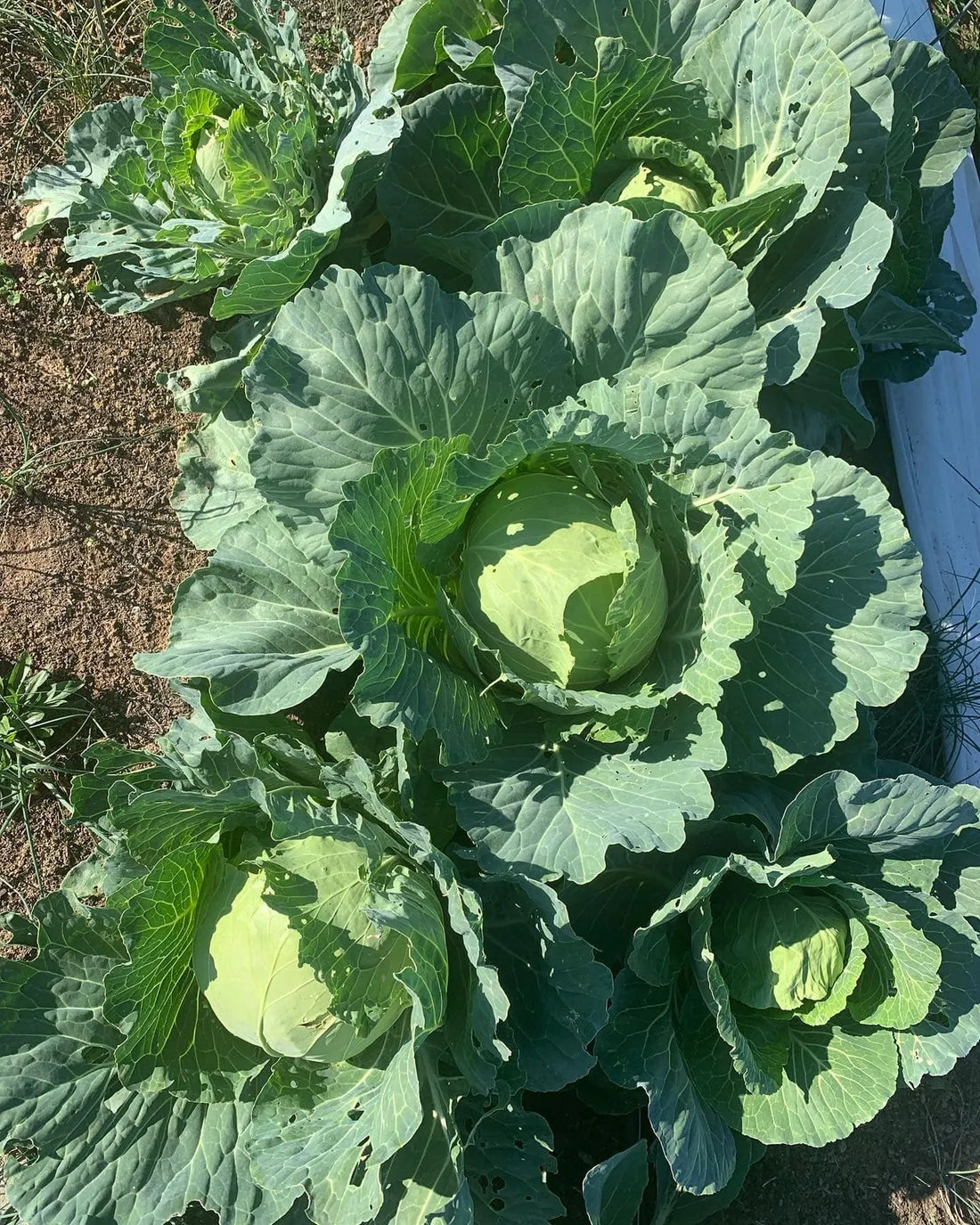
Natural Pest Management
Share
When it comes to gardening I find it so important and rewarding to work alongside nature- especially when it comes to pest control. Yes, we all get unwanted pests one way or another. But how we deal with these "problems" is an important topic to discuss.
I will briefly go over some of the ways that we can work hand in hand with Mother Nature. I truly believe that when we use sprays or powders to get rid of pests in the garden, we are essentially throwing something out of wack. And at times this can create a super pest or weed. Kinda like when people use antibiotics the wrong way, you make the problem even bigger then it was initially.
An important goal for my farm and garden is to be as natural as possible. I want the eco system to balance itself out. I understand that when you kill off one thing you're creating an environment for something else to thrive, as with all things we want balance--all things in moderation.
Row Covers + Netting
When it comes to planting things out in your garden, it's beneficial to do it at the right time. Additionally, when you're able to get ahead of a particular pests' lifecycle your plants can thrive. If you're unable to get ahead of the lifecycle by planting earlier or later, using a protective netting or barrier can also prevent damage. There are so many creative ways that people have come up with that don't break the bank. And depending on your garden size and scale, I'm confident that you can get something figured out too! I've often pondered about using a tule of mesh fabric from Joann's or similar stores. I'd love to see what you're able to come up with as well.

Bird Houses
Some of my favorite natural pest control to watch are birds. I'll admit it, I'm a backyard birder. And I definitely enjoy watching birds enjoy themselves in our space. A report sited that a nest of seven baby birds can eat approximately 720 bugs per day! That's pretty awesome.
Something I'm really looking forward to is setting up bird houses in and around my gardens. If rodents and rabbits are pests for your garden, you might even consider setting up houses for raptors. I know that we have tons of hawks, falcons and owls that live in our barn. It's pretty cool to see them flying around and swooping down to catch their prey.

Access to Water
Who doesn't want a nice drink of water or a bath to get cleaned up? Insects and birds enjoy these amenities as well. Whenever, I think about my garden I like to image Mother Nature as a guest, I want to offer her a place to sleep, things to eat, and drink. Plus, it doesn't hurt to make your space beautiful as well. Make sure that when you setup a water feature, the little beneficial insects have a way to get in and out without getting stuck. Little pebbles or rocks are a great addition to a birdbath. They also look lovely.

Flowers + Habitat Year Round
Providing flowers and year round habitat allows beneficial insects to overwinter. They in turn have babies and raise them in your space. When you create a sanctuary for them, they are able to reproduce more and more with the coming years. Nothing happens over night, but when you implement ways to encourage birds, and beneficial insects to enjoy your garden, you will notice a difference!
Growing MORE than you need.
Yes, I realize it's easier said than done...but whenever possible it's good to plant more than what you need to ensure that you get plenty of what you want. Sometimes it even helps to grow the same crop in different areas. Some people even find success with growing a sacrificial crop, which is growing a crop to attract bad bugs to that crop rather than another crop. I also urge people to try different things to see what you like doing, and what works best for you and your garden. There is no one size fits all.
